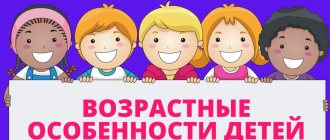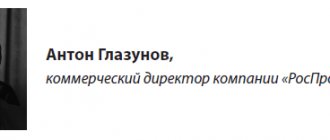Knowledge of the basics of child psychology will help parents properly raise their offspring so that he develops as a full-fledged personality and can realize himself in the future. They are responsible for who their baby will grow up to be, and it is the parents who must be able to properly organize the educational process. Child psychology is a science that studies the mental development of children from birth to the end of adolescence, under the influence of biological and socio-ecological factors.
What is education?
Each person goes through a certain development path. At some points this development is spontaneous, but often it is organized and orderly. Education as a process of personality formation is a purposeful and systematic impact on the spiritual and physical development of a person. This process is carried out through training, education and organization of human life.
Interaction between children
From a very early age, children strive to communicate with other children. In child psychology, interaction with other children is a toddler’s way of satisfying his self-esteem and desire for self-knowledge.
Often children of different ages play on the playground. Children of the same age usually compete with each other, which results in fights, quarrels and tears. The elders, imitating the adults, strive to take control over the younger ones by telling and explaining something. This reinforces their knowledge and develops a sense of responsibility and importance.
Adults must organize communication between children so that none of them brings psychological trauma to the other. Make sure that the elders do not offend the younger ones, so that the younger ones do not interfere with the older ones. After all, a conflict between children that is insignificant for parents can forever leave a mark on the soul of a growing person.
Features of the educational process
Like any process in a child’s education, upbringing has its own characteristic features that distinguish this process from others:
- Focus. Ensured by unity of goals. The greatest effect from upbringing is achieved when the child understands what is wanted from him, and the goal of upbringing is close to him.
- Multifactorial. The unity of subjective (needs of the individual) and objective (external conditions of development) factors.
- Hidden results. Achievements through upbringing are not as obvious as through training. Nurtured qualities can also manifest themselves in adulthood. While the result of learning a skill is immediately visible.
- Duration. Raising a child is not a matter of just one day. Usually this process takes a person’s entire life. At first he is subject to educational influence from adults, and then engages in self-education.
- Continuity. To achieve a certain goal, systematic and constant work is required. Periodic education (from time to time) does not bear any fruit. After all, an individual needs to start developing some habits anew each time. And since they are not reinforced by constant use, their consolidation in consciousness does not occur.
- Complexity. The entire process of educational influence should be subject to one goal. There must be unity of goals, objectives, methods and techniques. It is important to have a complex impact on the personality (from all sides), since personality qualities are not formed one by one, but all at once: some to a greater extent, some to a lesser extent.
- Variability and uncertainty of results. Under the same external conditions of upbringing, the results obtained in children may be different.
- Two-sidedness. There is a direct connection between the educational process (from teacher to student) and feedback (from student to teacher). For the most productive parenting, feedback plays an important role.
- Dialecticality. This implies continuous development, dynamism, mobility and variability of the education process. Dialectics also indicates the presence of internal and external contradictions in the educational process. Some can serve as an impetus for development, while others, on the contrary, can slow it down.
Goals and objectives
Education of any kind has a purpose.
In psychology, there are 2 types of goals:
- Formation of qualities that all people should have.
- Education of an individual.
In modern psychology, two goals are combined into one. The unity of general and individual qualities is important. Goals are divided into short-term, long-term and medium-term. The first type of goals is current. It is necessary for coordination and adjustment of long-term and medium-term goals.
Medium-term goals are set for approximately 1 year. The purpose of education is focused on a specific age. Therefore, they are gradually changing. For example, for young children, it is important to develop the first social connections, the basic qualities of behavior in society.
It is important to prepare teenagers for complete separation and further adult life. Therefore, medium-term goals are focused on a short time period, while the cultivation of certain qualities is relevant for a person during this period.
Long-term goals are focused on the formation of sustainable qualities that are necessary throughout life. These goals are achieved by solving problems. Tasks are formed depending on the method of education.
For example, for mental education the following tasks can be distinguished:
- Developing interest in learning.
- Assimilation of the volume of acquired knowledge.
- Development of the need to constantly update knowledge.
- Forming the habit of applying the acquired skills in life.
Target structure of education
Education from the point of view of the target criterion implies the implementation of a certain series of sequential tasks. The purpose of the educational process at school is aimed at:
- comprehensive and harmonious development of personality, as well as its holistic formation;
- formation and development of moral and ethical qualities;
- enriching knowledge in the fields of science, culture and art;
- education of a life position taking into account the democratic orientation of society, human rights and responsibilities;
- shaping the inclinations and desires of the individual, taking into account his capabilities, as well as social requirements;
- development of cognitive activity that shapes consciousness and professional orientation;
- organization of activities capable of developing the necessary personality qualities;
- development of communication as an independent component of personality education.
Teaching children from the point of view of child psychology
The goal of child psychology is to establish the physical, intellectual and psychological ability to perceive new information. To objectively assess a child’s ability to learn, psychologists have developed the following criteria for his readiness:
- physical readiness for learning;
- intellectual and physical readiness (developed speech, fine motor skills);
- psychological readiness;
- socio-psychological readiness.
Knowledge of age-related developmental norms gives a signal to move on to a new stage of learning without burdening the child with an excessive flow of information.
The sequence of implementation of education
There are a number of stages of the educational process through which he must go in order to solve all the assigned tasks.
- The first stage is mastering knowledge of norms. This implies that the student has mastered the norms and rules of behavior. The formation of the behavior of the individual as a whole depends on this. In some educational systems, this point is overlooked or they believe that it is not so important for the formation of personality. However, this is fundamentally wrong. The further education of the child depends on behavior. The pre-revolutionary school was based on rapid correction of behavior through the use of corporal punishment. The post-revolutionary school relies on verbal methods of shaping the behavior of students.
- The second stage is the formation of beliefs. The knowledge gained about the norms and rules of behavior should develop into beliefs (the understanding that one cannot behave differently). Correctly formed beliefs in childhood become the basis for further existence in society. Without these firmly established postulates, the process of education will be weak and shaky.
- The third stage is the formation of feelings. Human emotions are the human search for truth. Pupils perceive information through a string of senses. It is educators who can skillfully vary them and achieve the desired result.
The fundamental point that relates to and permeates all of the above stages is activity. The implementation of the tasks of each stage is possible only through activity. The more time devoted to purposeful, well-organized activities, the greater the effect will be obtained from education.
Child psychology and development up to 5 years
It is difficult for children to convey what they are experiencing, much less analyze their feelings. This is where child psychology helps provide important and valuable information to better understand what is going on in their inner world. After all, education should be based on the age characteristics of children so that they can fully develop.
Psychologists identify the following stages of child development in the process of growing up:
- development of the musculoskeletal system;
- world and language studies;
- emotional development;
- social interaction with surrounding people.
In the early years, they are also called “play years,” education should be built in the form of play. By the age of five, children develop motor skills and are not afraid to make verbal errors when speaking. They desperately want to communicate, to use language freely without embarrassment.
Cognitive growth is nurtured through imaginative play and creative activities. At this age, children begin to understand that not all people think and act the same. They also learn to control their emotions, taking control of impulses caused by anger or fear.
At this stage of growing up, it is important to explain the norms of behavior in the children's group, so that in the future there will be no problems in communicating with peers.
Connection and dependence of the components of education
The relationship between its components is also considered a feature of the educational process. It looks like this:
- planning the education process and determining goals and objectives that need to be solved;
- providing various activities that contribute to the upbringing of the child (material: labor, environmental; social: organizational and managerial, communicative, collective; spiritual: emotional-sensory, value-oriented, cognitive);
- control and management of interpersonal communication during various activities;
- summing up, analyzing completed tasks, developing a correction plan if necessary.
Classification
There are several classifications of education. They include different types.
Classification of education:
- On an institutional basis. This includes the main institutions of society: family, educational environment.
- By content. Education can be mental, labor, emotional, physical.
- According to the style of relationship between the student and the teacher. This includes a democratic, authoritarian, free type of education.
- According to the object of education. This includes types such as moral, emotional, civic, and legal education.
Sequence of pedagogical actions
The features of the educational process include a certain sequence of actions of the teacher to form the student’s personality. This sequence is represented as follows:
- familiarization with general norms and requirements (informing children of generally accepted norms and rules of behavior);
- formation of relationships (formation of the child’s personal attitude towards the need to comply with certain rules and norms);
- development of views and beliefs (creating situations that help strengthen relationships and transform them into beliefs);
- creating a general orientation of the personality (developing one’s own sustainable behavior and habits that will turn over time into character traits that shape the personality as a whole).
How to properly praise and encourage children in the process of parenting?
Child psychology is the most complex and at the same time the most interesting niche in human psychology. It is important not only to be able to convey to the child that he is wrong, but also to encourage him correctly.
On the one hand, encouragement is a regulator of children’s behavior, with the help of which it is easier to persuade them in the direction desired by their parents. On the other hand, it makes them feel superior to other children. Therefore, you need to praise correctly:
- do not praise for the qualities given by nature: intelligence, strength, beauty;
- do not praise more than once for a good deed;
- do not encourage, guided by a feeling of pity;
- do not praise, trying to win favor.
Psychologists believe that children should be praised no more than 8 times a day: picking up toys, neatly coloring, getting dressed, etc.
Happy parents - happy children
Since the family is very important in the formation and development of the child’s personality, much attention is paid to this issue in the process of education.
The formation of certain habits in children in educational institutions must coincide and be reinforced by the family and at home. The contradictions between these two institutions of socialization nullify the entire educational process.
Modern parents are ready to pay any money to correct errors in the behavior of their child. Fathers and mothers are ready to go to great lengths for the sake of comprehensive and harmonious development. However, they forget that it is parents who instill the initial norms and rules of behavior. After all, you must admit, it is much easier not to make a mistake than to try to correct it later.
Sometimes parents cannot understand why kindergarten, clubs, sections, development centers, psychologists and psychotherapists cannot help their child. And all because the results achieved in class are not reinforced at home. For example, a child in kindergarten is taught to respect elders, and at the same time at home he sees his mother swearing and shouting at his grandmother. It’s not for nothing that they say: “Happy parents make happy children.” They learn everything from adults and parents act as the first visual aid.
What does child psychology study?
Child psychology studies the psychological processes in children, how they develop as they grow up, and why they are so different from each other. This is a separate branch of science that studies the subconscious and conscious development of children. Psychologists pay attention to the child’s development, abilities in terms of learning, mastering his native language, behavioral characteristics, awareness of personality, his sexuality, and how he learns about the world around him.
As the baby grows, he goes through progressive stages of development, from birth to adulthood. Child psychology studies how environmental, genetic and cultural factors influence its development and how quickly it progresses from one stage to the next.
The role of the family in education
The word “upbringing” has long been associated with the word “family.” The function of the family in the field of education is the spiritual reproduction of the population. Education in a family, just like in a preschool institution, is two-way in nature, since not only children are educated, but also parents. It is customary to distinguish three aspects of the educational function of the family:
- impact on the child’s personality, on the harmonious and comprehensive development of his abilities;
- the educational impact of the family team on each family member throughout his life;
- the influence of children on parents, pushing him towards self-education.
A wise man once said that a child needs less money and more attention. It’s hard to disagree with him, because children are blank slates that reflect everything that surrounds them.
Psychology of raising children after 5 years
Having reached the age of five, children can already trace the cause-and-effect relationship and their memory is well developed. In the process of observing their surroundings, they are able to draw logical conclusions.
At the age of five, child psychology often explains the uncontrollable behavior of children by saying that they begin to imitate adults. And if the baby does not obey his parents, it is only because they do not hear him either. He absorbs everything he sees around him - both good and bad - on the basis of this his personality is formed. Children copy the behavior of adults, completely trusting them, being able to analyze only the behavior of their peers.
You cannot suppress the personality of a child at the age of five with too strict upbringing. Children at this age are still absolutely weak-willed, and with an excessive desire for discipline, parents can raise a quiet person who does not have his own opinion and no idea of what he wants to achieve in life. Communication should be based on dialogue and an explanation of the reasons why the parents made this particular decision (not buying this toy, going to bed at 21.00, etc.). The child must understand the motives of his parents’ behavior, because they are an authority for him. Then he will grow into a strong, self-confident person.











